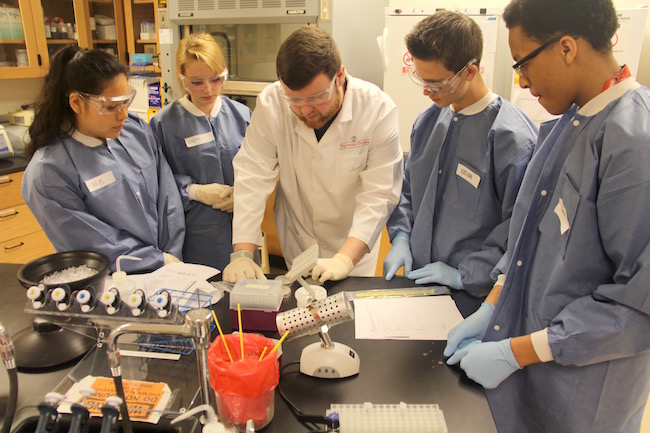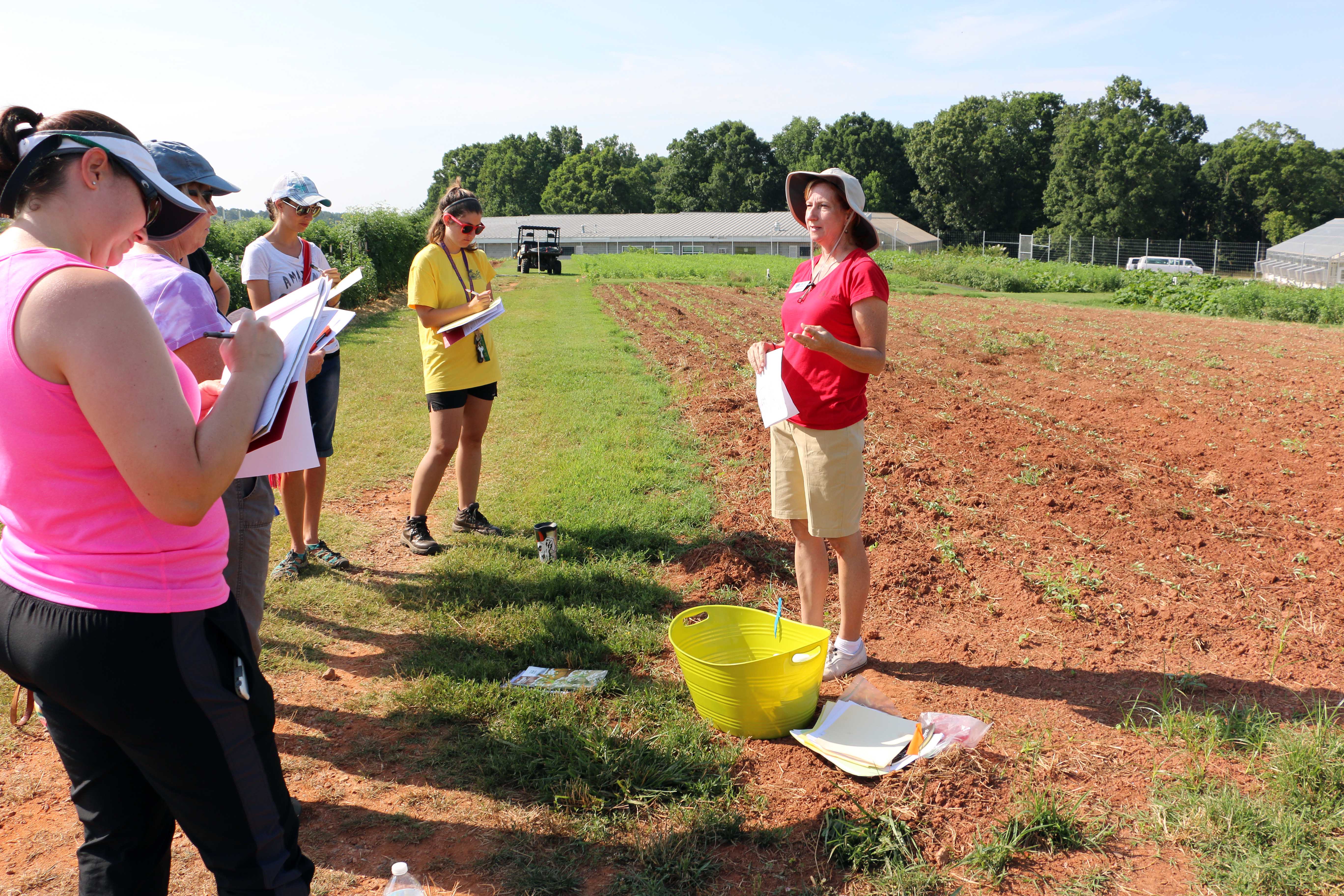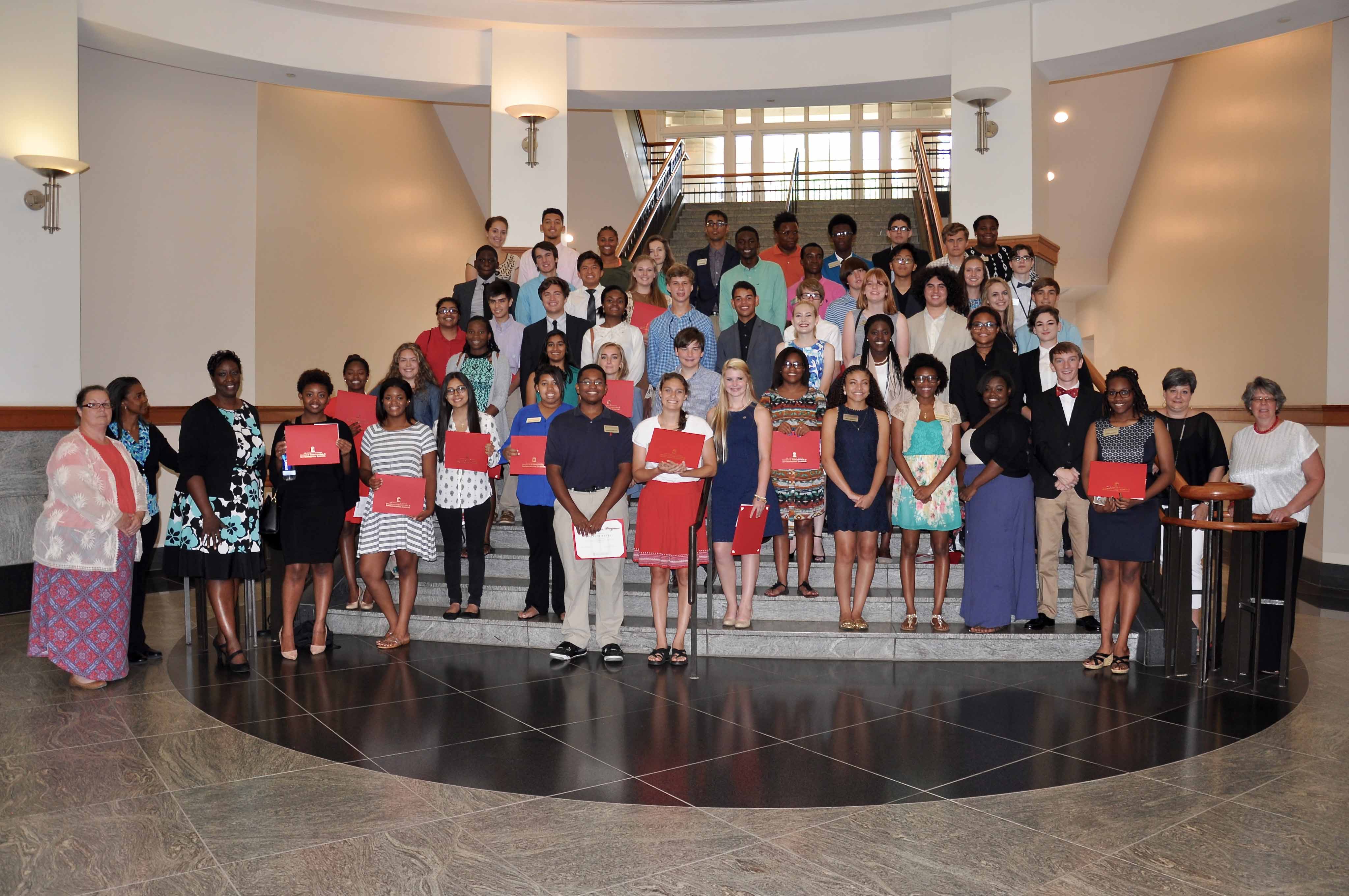Say “Ning” or “Moodle” to most people, and the reaction is a blank stare. But the names of these online networking sites have become as familiar as sippy cups to a group of childcare providers who met last month in Crawford, Ga.
The 18 women are enrolled in a new, infant-focused training program that uses Ning, Moodle and old-fashioned classroom learning to turn them into baby “whisperers.”
State law requires all childcare staff to get 10 hours of educational training each year, but little of that instruction focuses on infant care. That’s why University of Georgia faculty created this pilot program, which combines distance learning with classroom sessions, says Diane Bales, a UGA Cooperative Extension child development specialist in the College of Family and Consumer Sciences.
Most training is designed for people who work with 3- to 5-year-olds, “although one-third of Georgia’s children in childcare are under three,” said Karen Shetterley with UGA’s Georgia Center for Continuing Education. She is working with Bales on the program.
Children are considered infants until they’re a year old, or, as Jan Christian of Miss Jan’s Group Daycare Home in Watkinsville puts it, “if they’re walking and squawking and feeding themselves, they’re not [young] babies anymore.”
Toddlers can do group activities, such as playing a game, reviewing letters or eating snacks. Infants need individualized schedules and playtimes appropriate for their needs and level of development.
“Infants need time on the floor, toys that are large and sturdy, objects that make noise, toys to push and pull, balls and other objects to roll, things that can be stacked, filled and dumped, and board books with hard pages that they can turn themselves,” Bales said.
Age-specific activities are crucial for brain development.
Teaching babies how to form bonds and build relationships is part of good brain development. Almost everything adults do with infants can help build this, Bales said. Holding a baby, looking and smiling at her, talking to him, responding quickly and sensitively when he cries, talking to her while feeding or changing her diaper – these activities all build trust.
“Basically everything adults do to show babies they can be trusted to take care of the babies’ needs helps build those relationships, which are the foundation for independence, school success and later relationships,” Bales said.
Four groups of childcare providers are enrolled in the program for a total of 67 people. The one in northeast Georgia meets in Crawford, the southwest one meets in Moultrie, the southeast one meets in Savannah and the northwest one meets in Dallas. The course requires them to meet after work for two face-to-face sessions.
Individually, each woman logs onto Moodle to complete six 30-minute training sessions. As a group, they post photos and share stories with one another on Ning, a password-protected social networking site.
The Ning site and Moodle training sessions were developed by UGA graduate and undergraduate students. Shetterley called them the “driving force behind the project.”
Once the program gets going, Bales hopes to turn the training sessions over to county Cooperative Extension agents who work in family and consumer sciences.
For some of the childcare professionals, this is their first experience with online learning and social networking. But Bales says they’re willing.
“We had a woman in Moultrie who told us she had never touched a mouse before,” she said. “It took us 10 minutes, but we got an e-mail address set up for her.”
Participants don’t have to own a computer to participate, but they do need to be able to get online. Kathy Rogers, who runs a home-based childcare business in Colbert, uses her sister’s DSL. Rogers likes the Web-based training because she can network with other people.
Christian likes the online classes because she can do them during her breaks and while the children are napping.
Only a few weeks into the online course, childcare provider Jean Wells of Winterville already sees a change in the way she teaches – and the way her infant students react. “I can see a difference in language development,” she said. “We are working more with colors, numbers, reading and outdoor playtime than before.”







